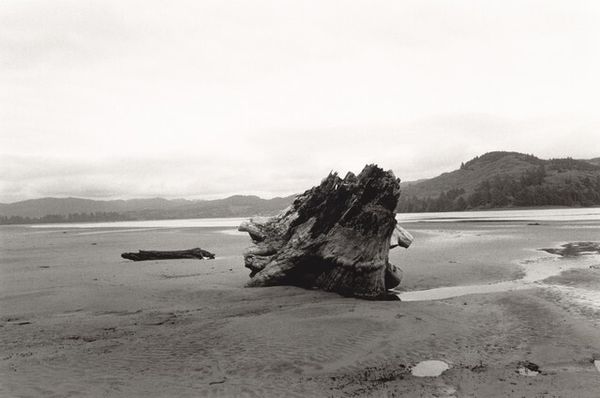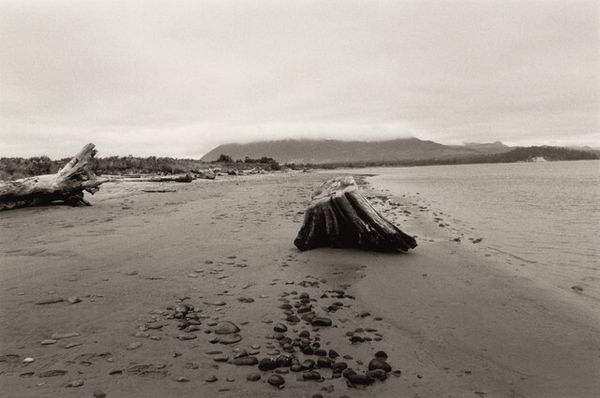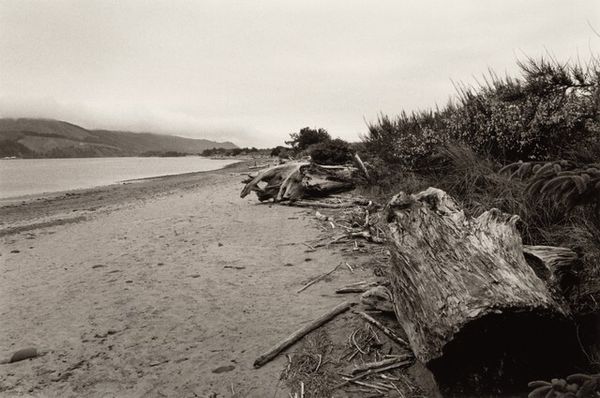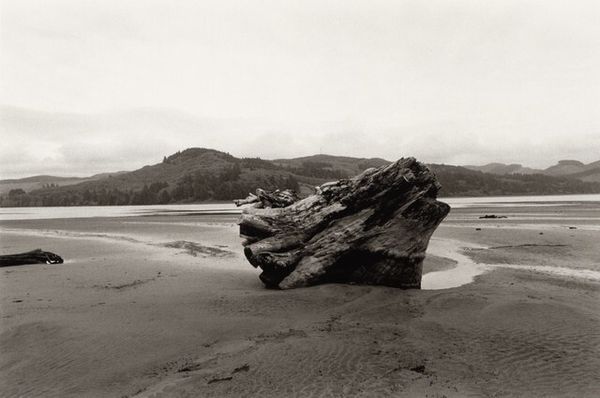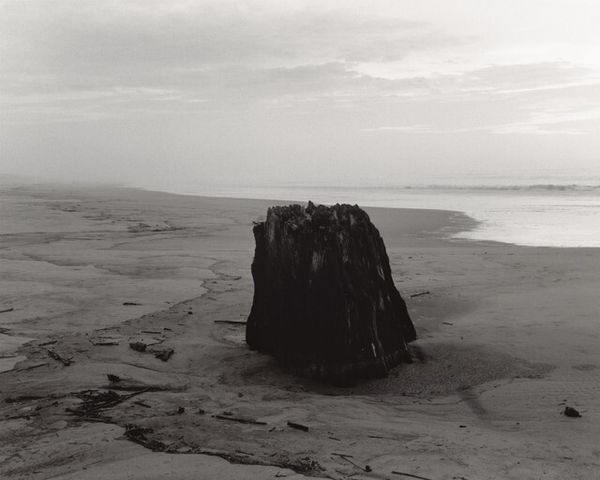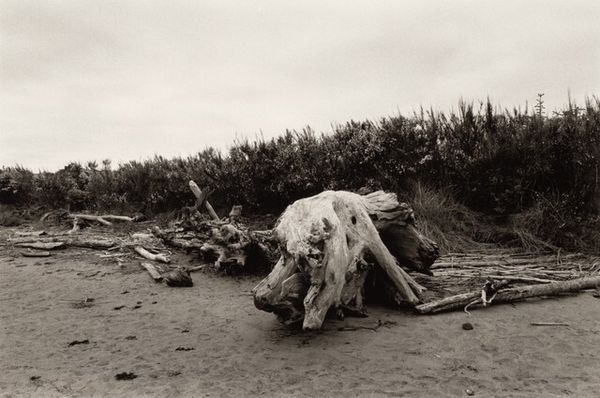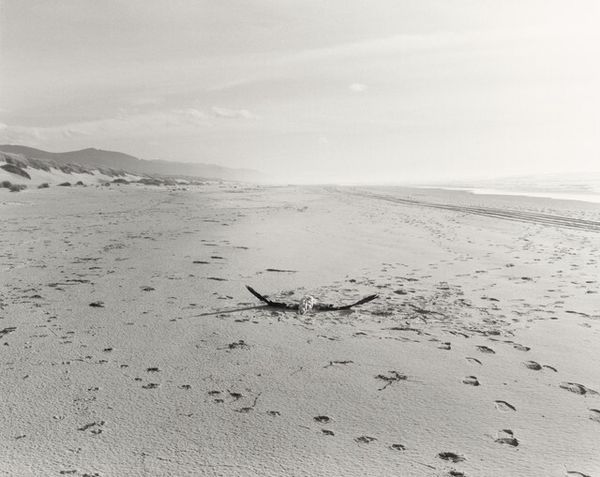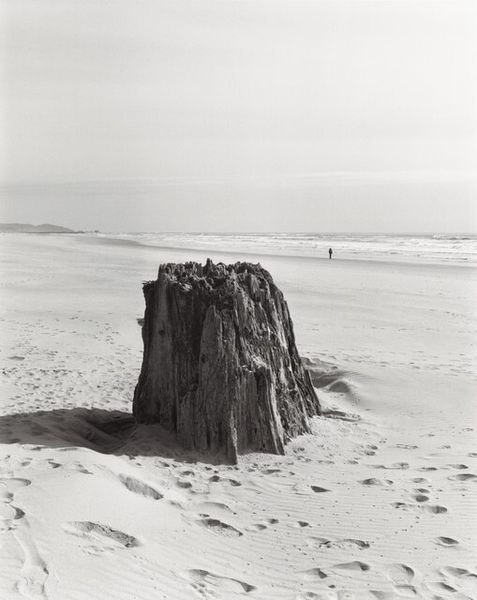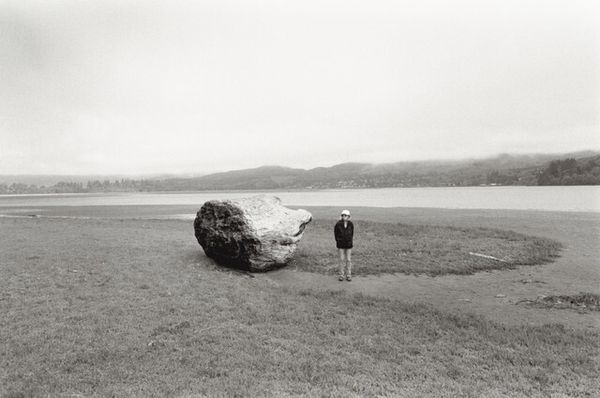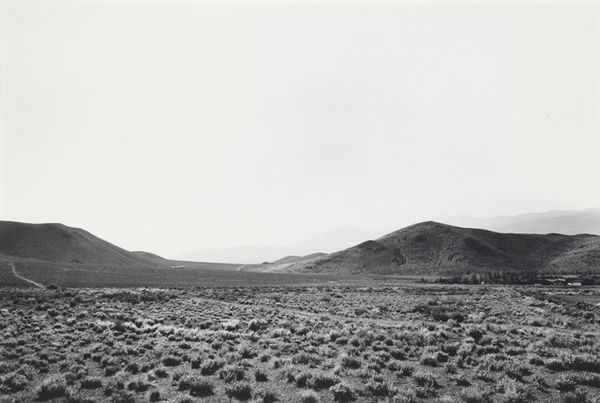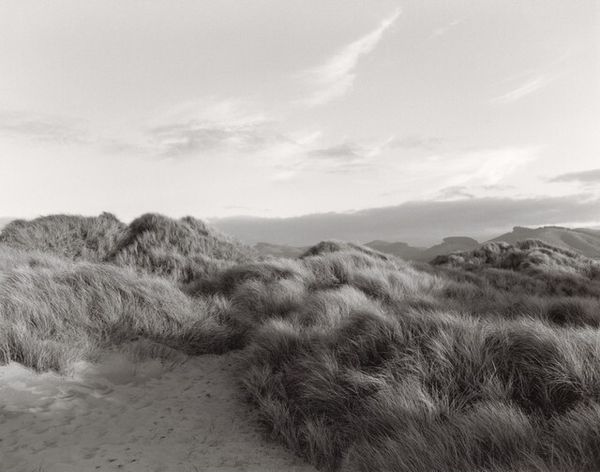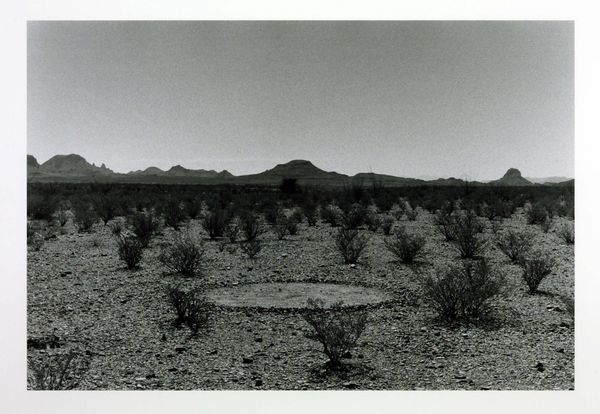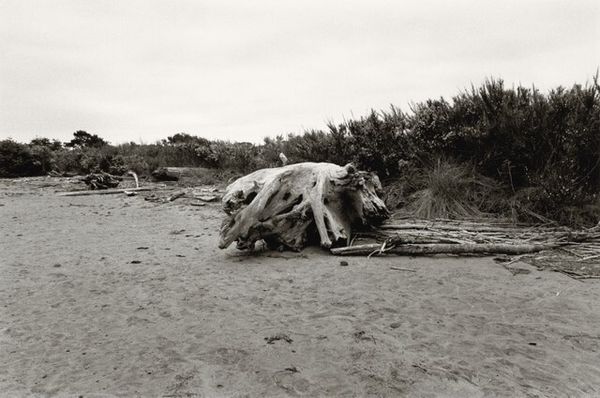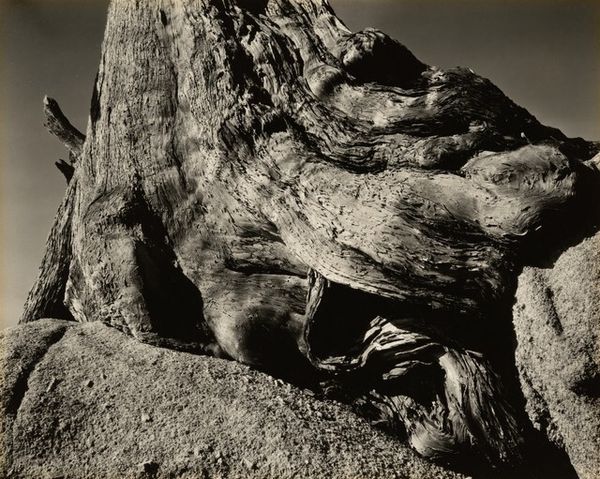
#
cloudy
#
black and white photography
#
countryside
#
black and white format
#
black and white theme
#
black and white
#
monochrome photography
#
monochrome
#
grey scale mode
#
shadow overcast
Dimensions: image: 19.7 × 29.8 cm (7 3/4 × 11 3/4 in.) sheet: 27.7 × 35.5 cm (10 7/8 × 14 in.)
Copyright: National Gallery of Art: CC0 1.0
Editor: Robert Adams' photograph, "The River's Edge," created in 2015, really struck me with its stark, grayscale palette. It has this solitary tree stump in the foreground. There is an overcast sky and, distant mountains create this sense of almost post-apocalyptic quiet. What do you see when you look at this piece? Curator: Ah, yes, it sings to me of the beauty in decay. Adams often uses grayscale to really strip away the artifice and find the truth in landscapes altered by humanity. This stump, isolated like that, isn't just a leftover piece of wood, but a monument to a past life, a lost ecosystem. Almost feels like a poignant memento mori, don't you think? Does the starkness almost echo in your soul? Editor: It definitely does! I think what's interesting to me is that, in a way, it is sort of hopeful, right? It's still *there.* Do you think Adams was trying to create some sort of emotional tension through his choice of scene? Curator: Precisely! Tension is the artist’s instrument, like a tightly strung violin string! Think of this: the barren landscape speaks of what’s been lost, and how. It's an elegy to nature but the enduring form of the stump speaks to the persistence of life, even after trauma. Perhaps he’s asking us to look beyond the immediate devastation to see potential, resilience... What remains after the torrent is still the very land where things grow anew. Editor: I hadn't really considered that aspect of rebirth within something seemingly so bleak. Thanks for that. It definitely gives a new, more nuanced read on the photo. Curator: Anytime. The River’s Edge reflects on both what is missing but moreover it is an invitation to imagine what can return. A testament to how landscape both suffers *and* persists.
Comments
No comments
Be the first to comment and join the conversation on the ultimate creative platform.
